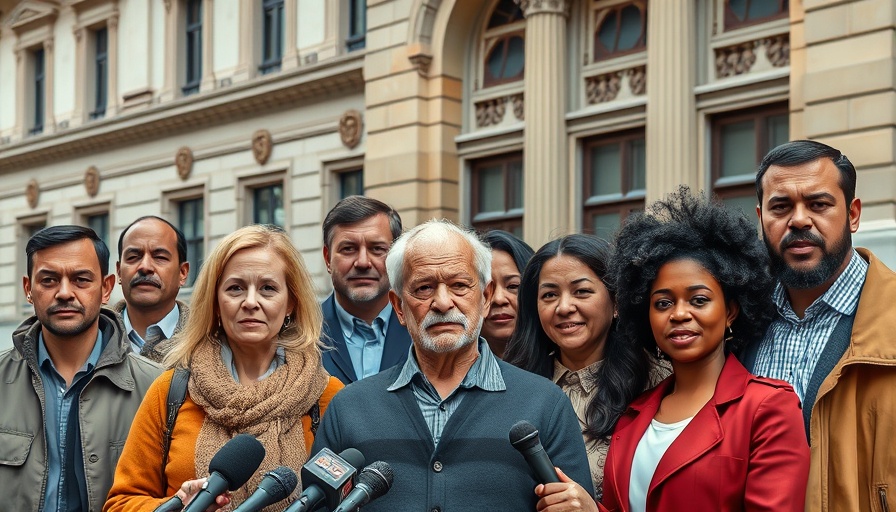
Money’s Dark Shadow: The Influence on San Antonio's Mayoral Race
The San Antonio mayoral race is witnessing an unprecedented financial influx from political action committees (PACs), raising concerns among candidates who argue that this 'dark money' undermines the democratic process. In a recent press conference, several candidates who feel sidelined in the fundraising race voiced their frustrations regarding the overwhelming influence of undisclosed donations on the election.
The candidate landscape, currently swollen with 27 contenders, showcases how financial resources can shape electoral outcomes. While some candidates like Councilman Manny Pelaez have benefited from supportive PACs that thrive on anonymous funding, others like Gina Ortiz Jones, Rolando Pablos, and Beto Altamirano have gained traction through more transparent channels, albeit with money sourced from larger political interests across different states.
What Drives the PAC Spending?
The surge in PAC involvement seems partly a reaction to stringent local contribution caps, which limit individual donations to $1,000. This restriction has led candidates to seek alternative funding routes, with PACs and personal loans becoming increasingly attractive. John Courage, one of the candidates left behind, critiqued the situation, stating, "Even PACs that file fundraising reports lack transparency regarding their donor lists, ultimately leading to a perception of 'dark money' menace in our elections".
Anecdotal Evidence of Fundraising Disparity
The disparity between candidates was starkly illustrated at the press conference. Candidates with lower fundraising totals have been vocal about feeling the impact. For instance, Jade McCullough lamented that her campaign was so underfunded that the city urged her not to file a finance report, highlighting the stark inequalities in fundraising.
Consequences for Voter Integrity
This financial backdrop raises vital questions about voter integrity and the perception of fairness in the electoral process. The reliance on dark money poses risks not only to the candidates who largely depend on grassroots support but also diminishes voters’ trust in the system. These candidates are acutely aware that the general public may not see the full breadth of who is financing their campaigns.
Reflections on Local Political Dynamics
The current situation reflects broader themes in American politics. As PAC spending becomes more normalized, local documents show a pattern of disillusionment amongst voters who prioritize transparency. Councilman Courage’s call for clearer disclosure is a microcosm of a national sentiment where constituents are demanding accountability from the candidates vying for their votes.
The Path Ahead: A Critical Juncture
As the election approaches, candidates must articulate their visions while navigating the complex landscape shaped by significant PAC funding. The interplay between grassroots campaigns and deep-pocketed intermediaries will be critical to monitor. While the upcoming election is a local affair, it echoes a nationwide phenomenon that could set precedents for future races in Texas and beyond.
Conclusion: Understanding Your Vote
It’s crucial for voters to remain informed about the financial currents that shape the candidates vying for their support. As we approach the election day, ensuring transparency and accountability in funding becomes a shared responsibility among all stakeholders—voters, candidates, and campaign financiers alike.
 Add Row
Add Row  Add
Add 




Write A Comment